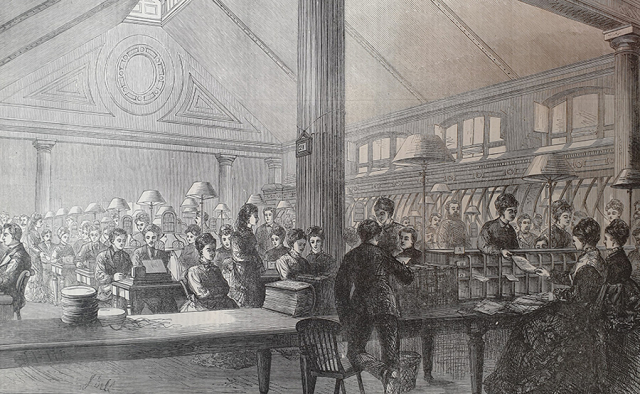Addressing Health: Sickness and social reform in the Victorian and Edwardian period
Mini Teacher Fellowship with the Addressing Health project

This special funded CPD programme ran in partnership with the Wellcome Trust Collaborative Research project, Addressing Health: Morbidity and Mortality in the Victorian and Edwardian Post Office. The project explores the relationships between work and health in the nineteenth and early twentieth centuries through the lens of thousands of Post Office employees. As part of the programme, participants worked with the historians from the Addressing Health project and teacher educator Helen Snelson to produce classroom resources for others to use and adapt.
How is this work relevant to my teaching?
By the end of the nineteenth century the Post Office was the largest employer in Britain, outside of the army. It employed men, women and children throughout England, Ireland, Scotland and Wales in urban and rural locations and in a range of roles from rural messengers to high powered civil servants. As part of the Civil Service, the Post Office was also at the forefront of providing a range of welfare support for employees including sick pay, medical care and a pension. The documents produced to record this provision provide unique insights to life and experiences of work and sickness in this nationwide organisation.
The project’s research has touched on themes of medical knowledge, disability, gender, geographies and histories of sickness, occupational health and the family as well as the role of the state in managing public health and employment reform in the period. The wide social, political and economic coverage provides curriculum links to local and post-1066 units at Key Stage 2, local and ideas, political power, industry and empire: Britain, 1745-1901 units at Key Stage 3, medical history at Key Stage 4 and links to topics covering 19th century reform at A-level.
Access the free Addressing Health datamapper
Outcome resources from the programme are now available below.
Any further questions?
Please contact Maheema Chanrai at maheema.chanrai@history.org.uk.

